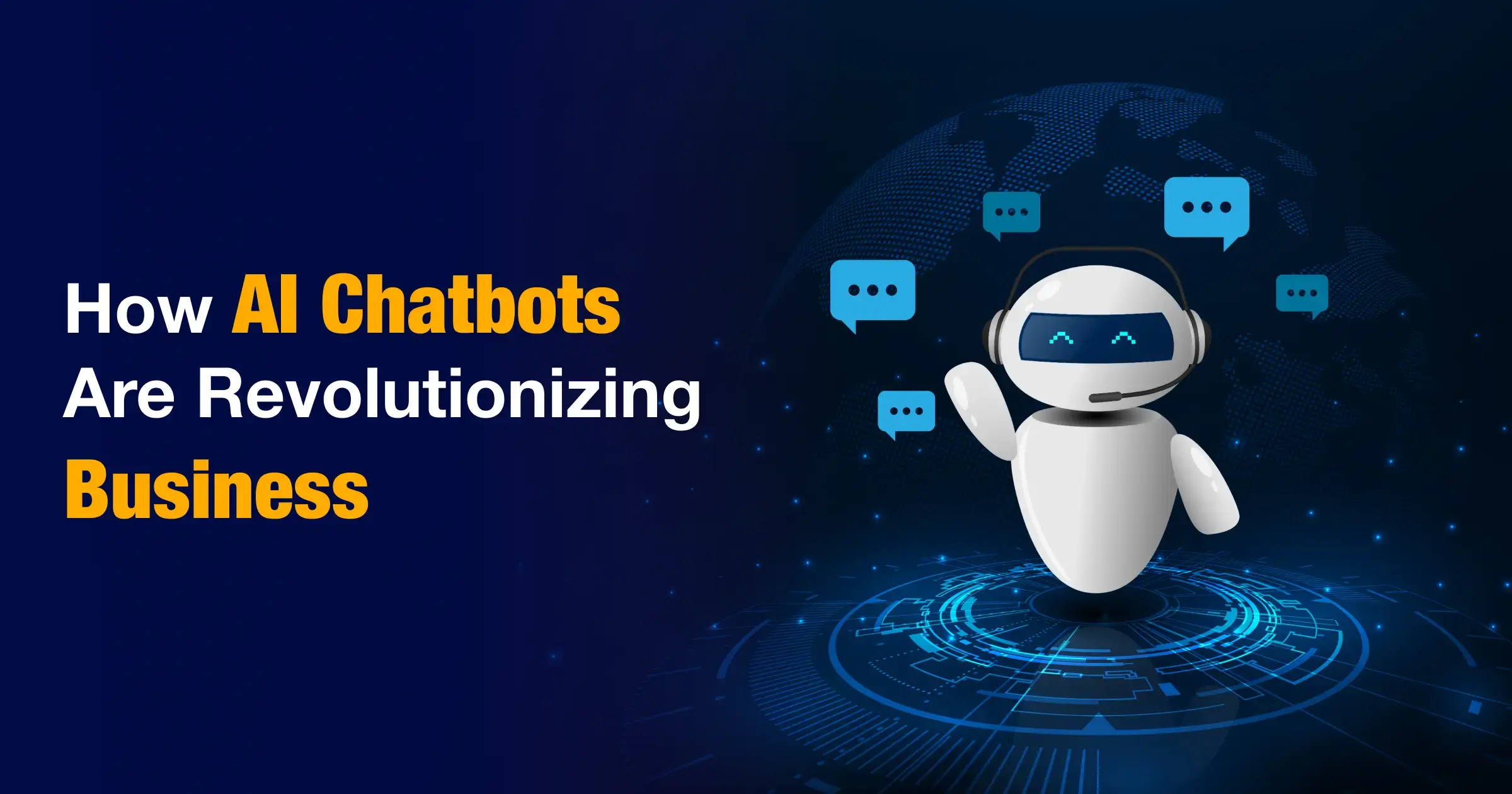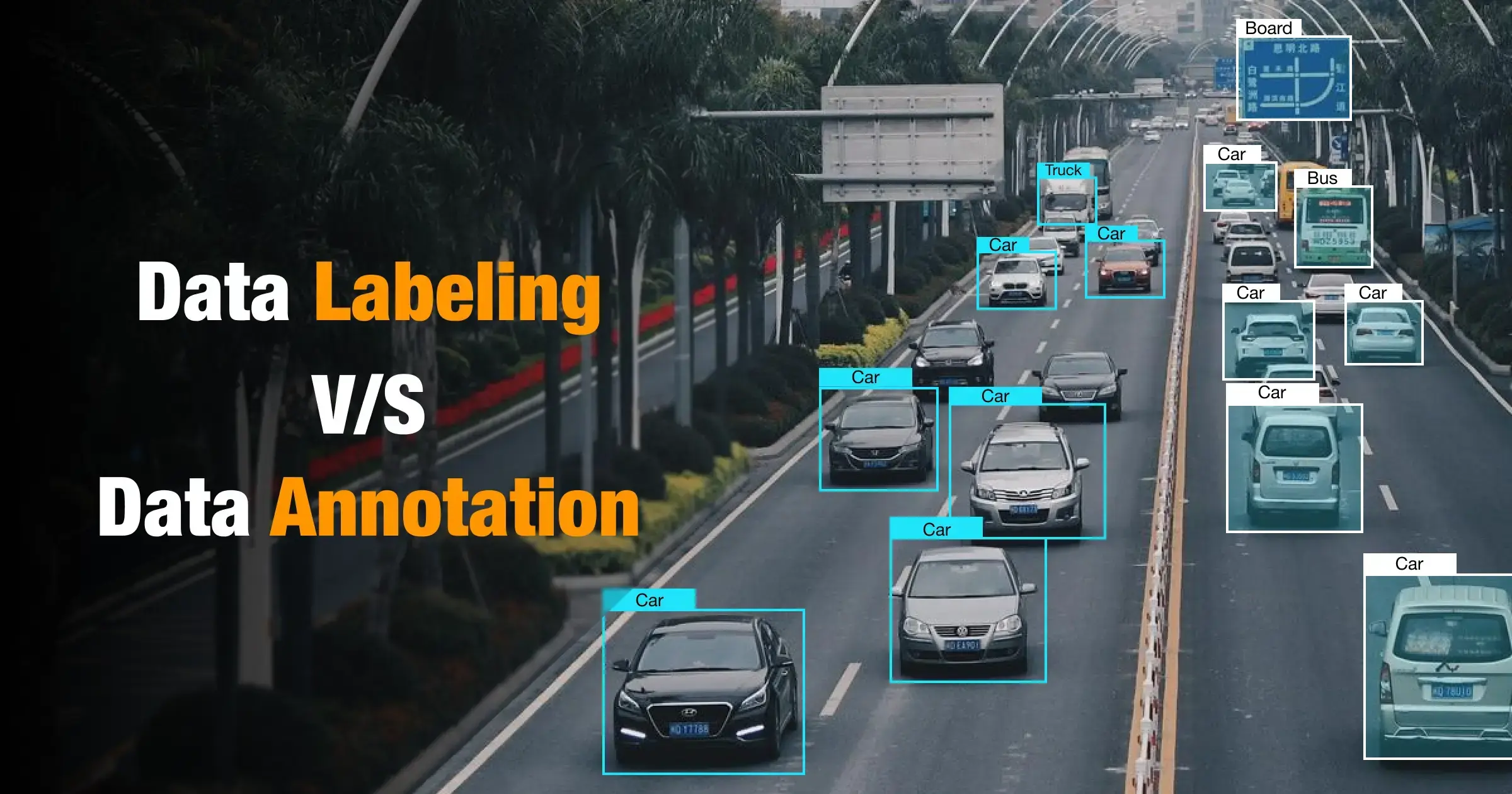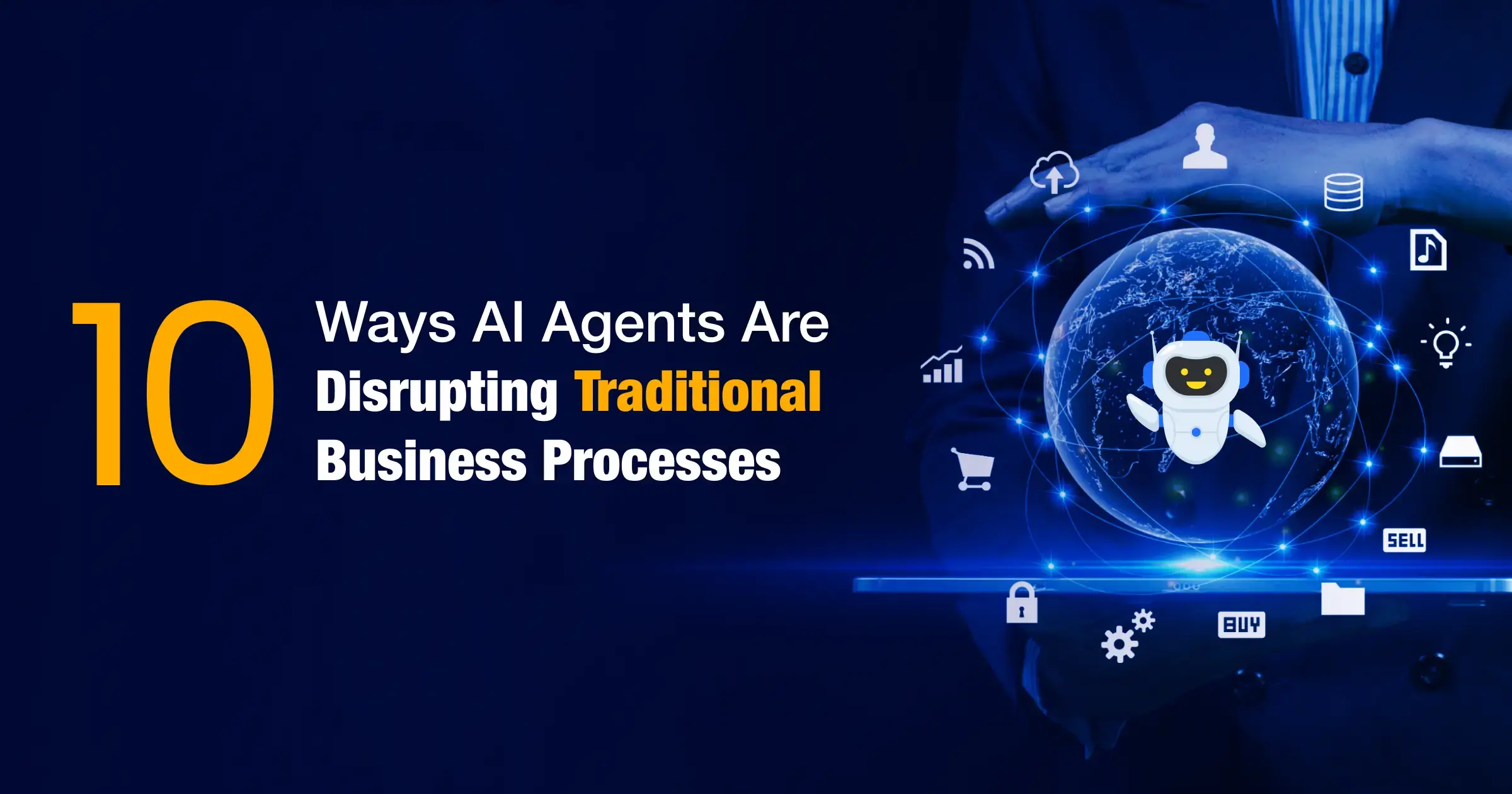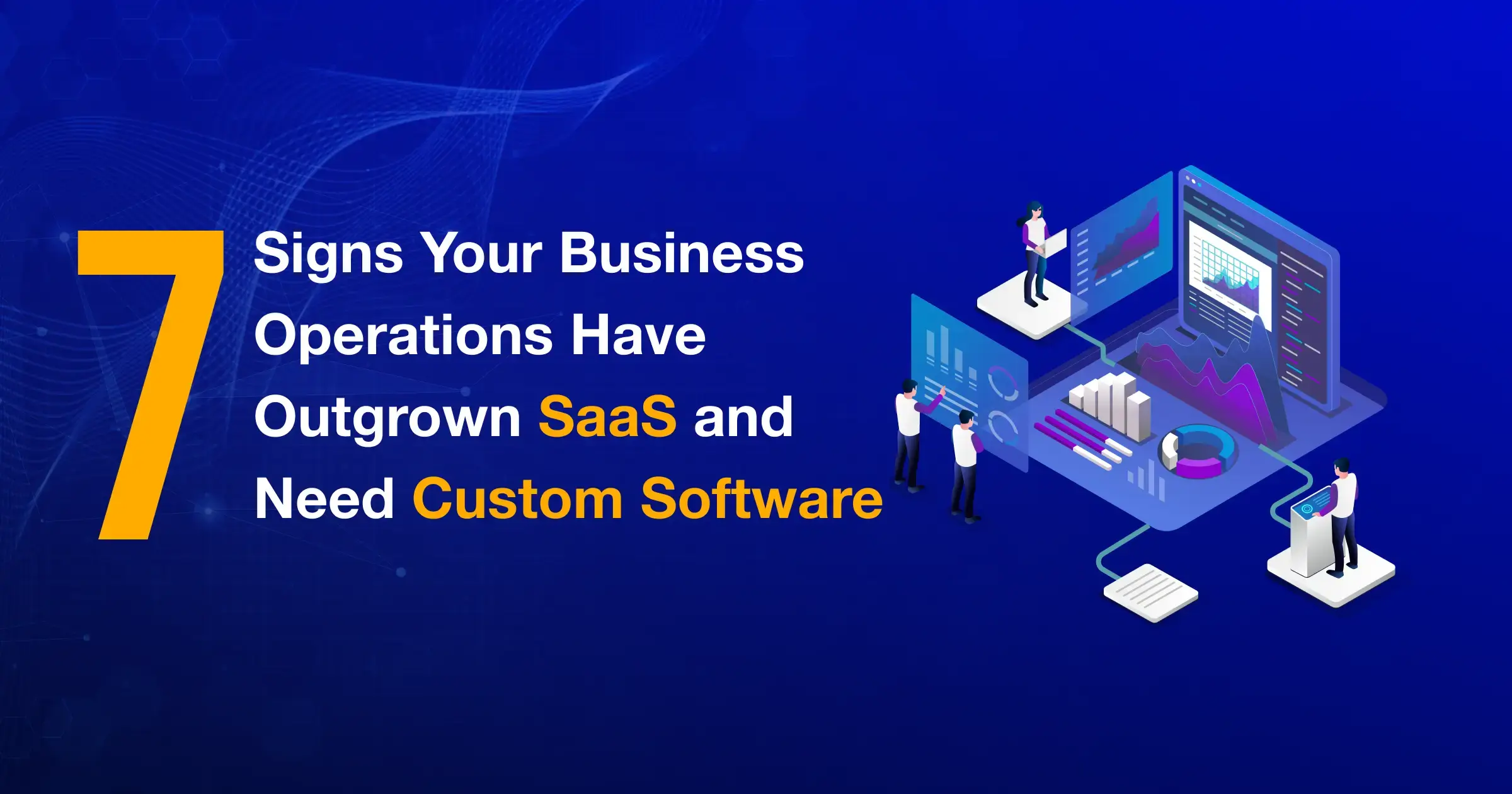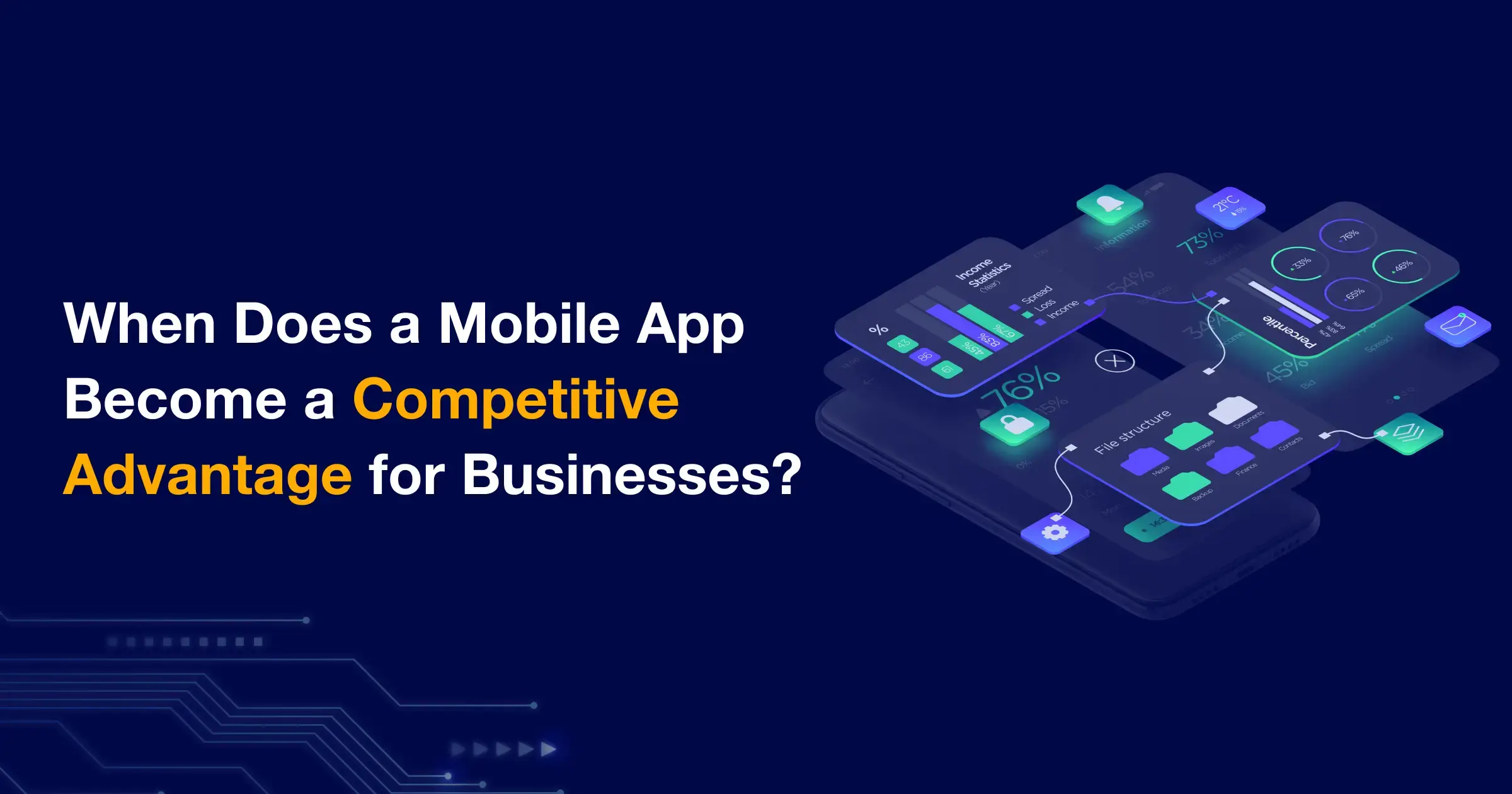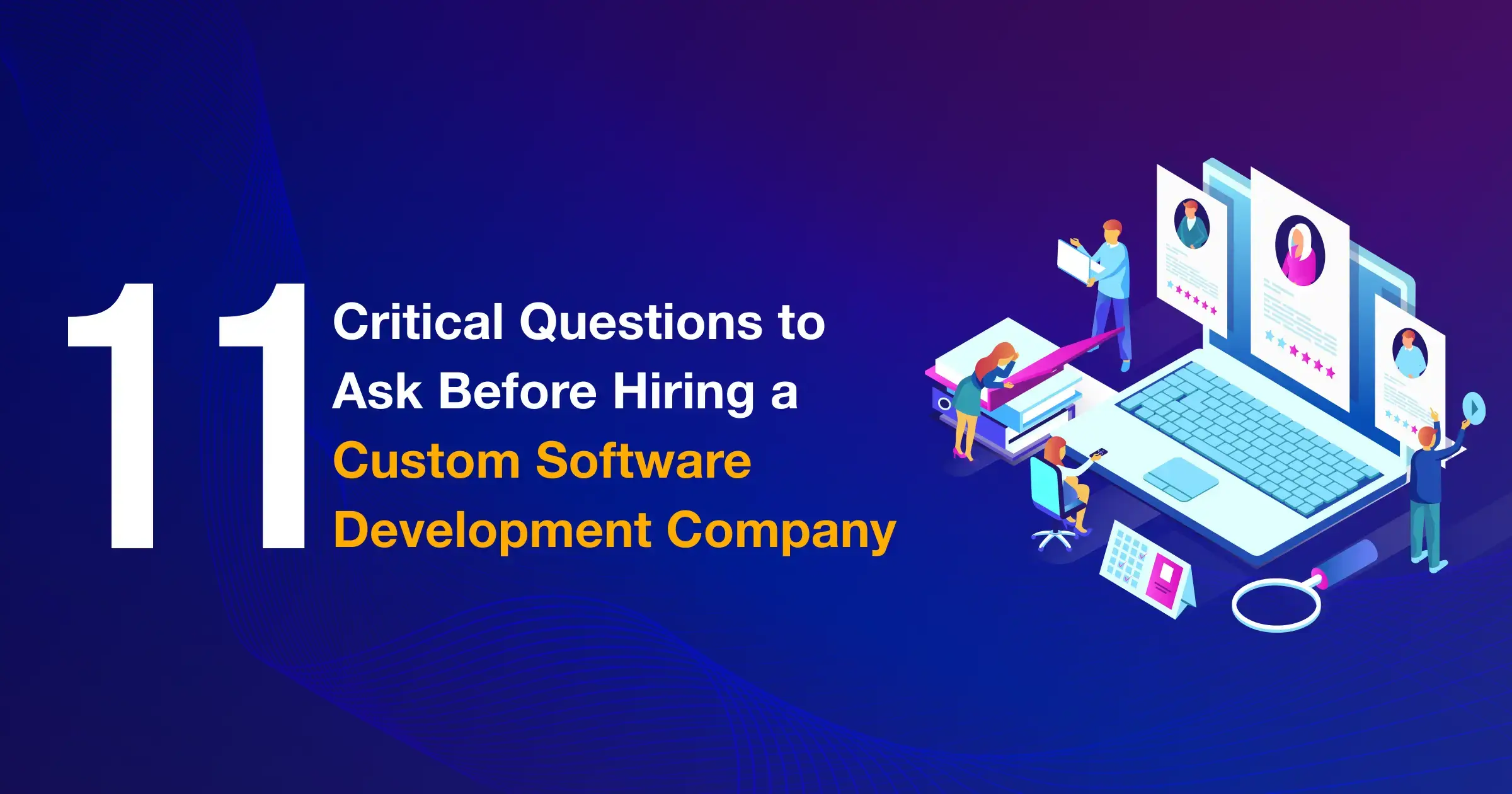
AI chatbots fundamentally change the way businesses work by making many of their operations faster and easier like customer service. By giving instant, contextual assistance and guiding people through tasks 24/7, they help them resolve their queries and complete actions without delay. AI chatbots understand customer intent by analyzing their interactions and then provide solutions most suitable for each individual.
Key Aspects Covered
- AI chatbots help businesses work faster and serve customers better
- They offer instant support and handle common tasks without delay
- Chatbots reduce support costs and improve team efficiency
- Businesses use them to capture leads, boost sales, and guide users
- They are used across industries like retail, banking, healthcare, and tech
- With the right setup, they improve customer experience and drive ROI
- Start small and update often to see long-term results
What is an AI Chatbot?

An AI chatbot is typically a computer program having the capability to talk to people in a natural way. Unlike traditional chatbots that operate based on pre-defined rules, it understands questions and then gives useful replies. You can chat with it using either text or voice.
Machine learning and natural language processing are two key technologies that these AI chatbots are built on. Using this, conversational AI figures out what someone is saying and how to respond.
Businesses use AI virtual assistants on a variety of platforms, including websites, apps, and messaging platforms. They answer questions instantly and help with tasks, including step-by-step guides. Some chatbots also learn over time through feedback and get better at helping.
In short, an AI chatbot acts like a smart assistant. It works all day, talks to many users at once, and helps businesses give faster, better service.
Why Businesses Are Betting Big on Chatbots
As chatbot development services are on the rise, more and more businesses are starting to trust and invest in AI chatbots. This is because these smart AI assistants help solve real problems in a smart and simple way, without incurring huge costs.
They can talk to customers anytime, even during weekends or holidays. As people do not like waiting to get their issue resolved or need assistance, these virtual assistants make sure they don’t have to.
Chatbots give quick answers. They don’t get tired or slow down. They can chat with hundreds of people at once. That’s something humans can’t do. This helps businesses cut down long wait times and support costs.
As the role of artificial intelligence in business environment is so profound nowadays, a lot of them also use chatbots for things from collecting leads and improving sales to retaining customers for sustained success.
How many times have we encountered a chatbot pop-up on our screens when visiting a website? It asks questions and finds out what you are exactly looking for, then assists you in a way that suits you well.
Cost is another big reason behind adopting AI chatbots by businesses.However, the effects are two-fold: one it eases businesses from hiring more people, which is expensive and two, it allows them to reallocate valuable human resources to other demanding areas of their businesses. Building an intelligent chatbot is an easy and cost-efficient investment and easier to manage.
The prominence of AI chatbots will only go high with businesses generating more and more data, and with effective data analytics, they can enable AI chatbots to holistically understand queries, including customers’ past interactions and give best solutions.
With AI chatbots, every chat is a chance to learn what customers want. Chatbots store this information and help companies understand trends.
It gives an edge as you can dig deep into data using effective data mining services, using which you can discover patterns within data and make better decisions.
Business owners want tools that can grow with them. Chatbots are easy to scale. You don’t have to train new people every time. Just update the bot.
So, companies are betting big on chatbots because they make life easier, cut costs, and keep customers happy. That’s a smart deal for any business.
Top Benefits of Using AI Chatbots
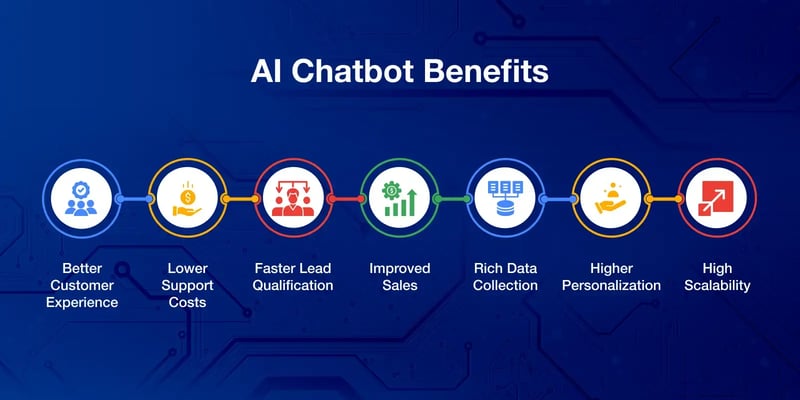
As AI chatbots, without a doubt, bring clear, proven gains to any business, they also help you reduce costs and serve customers round the clock. Here are some key benefits that AI chatbots bring to your business.
1. Better Customer Experience
People like fast, friendly service and AI chatbots give that on every visit to customers. It greets users by name and listens to each of their questions before giving them answers right away. With these intelligent chatbots, nobody has to wait on hold or search long help pages.
The bot keeps the tone steady across all channels and platforms, so customers feel at ease at once. However, during escalations, or when a case turns complex, the chatbot can bring a human agent into the chat without any break in the flow.
- Instant answers at any hour
- Friendly tone that feels personal
- Quick transfer to a live agent for tough cases
2. Lower Support Costs
If you hire and train large support teams, your budgets can drain fast when compared to AI chatbots because a single chatbot is capable of talking to many people at the same time and never gets tired.
It handles routine questions that flood the help desk, which means fewer tickets for the staff. Operating costs significantly drop because you need less overtime and fewer seasonal hires.
- Cuts repeat questions that slow down the team
- Shrinks call‑center staff needs and overtime pay
- Works on weekends and holidays at no extra cost
3. Faster Lead Qualification and Sales
As soon as a visitor enters a web page or application, AI chatbots greet visitors right away. They start the conversation by asking simple yet pointed questions to understand their needs and then guide them to the right product or next step.
With this, you can easily flag hot prospects and transfer them to sales right away. With this approach, you will be able to keep leads warm and boost close rates. Customers enjoy a quick route to the solution, and the sales team deals with people who are ready to buy.
- Collects contact data without long forms
- Guides shoppers to the best product or plan
- Pushes qualified leads to the CRM in real time
4. Rich Data Collection and Personalization
As every chat holds valuable data about user preferences, you can analyze data either in-house or hire a data analytics consulting firm, which are logged by chatbots. Teams can spot trends, common pain points, new product ideas, and many more by mining into those data.
The bot can also use past chats to tailor future replies, which makes each user feel known and valued. Over time, this data shapes better marketing and fresh product features, ultimately improving the efficiency of your business operations.
- Stores every chat for deep analysis
- Feeds insights into your marketing stack
- Recommends products based on past behavior
5. Easy Scalability and Global Reach
With AI chatbots, the question of scalability and flexibility is made simple. You can raise chat capacity with a few clicks without any hiring rush. What’s more impressive is that the same bot can connect with your users in many languages, which opens doors to new regions fast.
When traffic spikes after a campaign, the bot keeps response times low with steady quality. Expansion no longer means a bigger payroll or long training cycles.
- Handles sudden traffic jumps with no slowdown
- Adds new languages through quick updates
- Keeps consistent service quality as volumes grow
AI Chatbots Use Cases
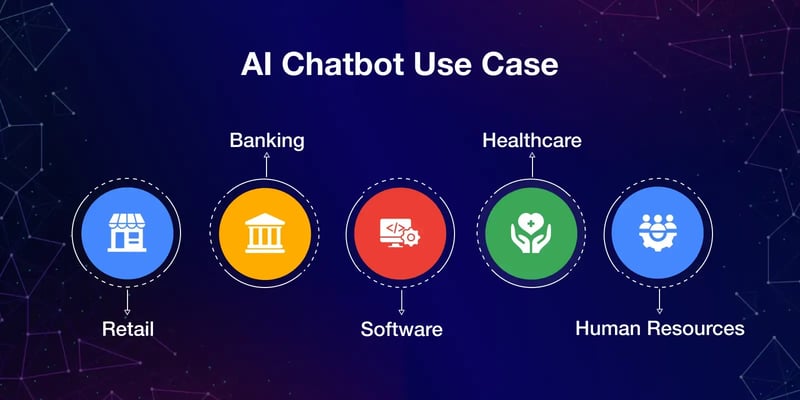
Due to the fact that AI chatbots save time and cost and help teams stay focused on what matters they are being used by many types of businesses. Let’s look at how different industries use them to get results.
Retail
Many operations of retail businesses get simplified by the introduction of intelligent AI assistants as they help customers find products, answer questions about orders, manage returns, and many more. As a result, businesses are witnessing a sharp reduction in the number of people dropping off before they end up buying.
Subsequently, shoppers also benefit from these bots when they need help and support teams face fewer repeated questions. The result is better customer satisfaction and more completed sales.
Banking
Banks and finance teams use chatbots to manage simple tasks. They assist customers in a variety of things from checking balances and resetting passwords to starting a fresh loan application process and completing KYC.
These bots can seamlessly connect with the bank’s systems and give secure replies, which comes highly beneficial to people as they no need to wait longer before they avail such services. This saves time for both the customer and the support team.
Software
Software development companies typically add AI chatbots to their product dashboards or help centers for improved performance tracking. These bots assist users during setup and help timely in case of troubleshooting.
With simple language and easy to understand steps, these bots guide professionals and clients alike in the best way possible that includes sharing links to help articles or videos.
Healthcare
Healthcare providers use chatbots to help patients book visits and schedule appointments. Bots help users learn about tests and check their insurance coverage, including distinct details about coverage and exclusions. People get answers at any hour, and clinic staff spend less time on phone calls, which helps reduce missed appointments and improves the flow of daily work.
Human Resource
Intelligent chatbots benefit HR teams in companies in onboarding new employees by answering policy-related questions, guiding document uploads, helping with training schedules, and many more. As new hires feel more supported, bots improve employee satisfaction and boost operational efficiency while cutting costs considerably.
How to Measure AI Chatbots ROI
You need to clearly understand the return on investment from AI chatbots, which is important for any business, irrespective of whether you are a startup or large enterprise. When you see the value of chatbots, you can easily plan things including investment and scaling options.
While measuring it, you need to think of ROI more than just about saving money but also includes the time saved, the experience your chatbots offered to customers, and improved brand value you created.
To measure ROI, you can look at the results before and after adding the chatbot. Check how fast support responses are now. See if the number of tickets or calls has gone down, and track how many users complete a task with the help of the chatbot. These are all signs that show progress.
ROI also grows over time. As the chatbot handles more questions and gets smarter, it adds more value, and you spend less time fixing issues and more time growing the business.
Here are some key things to track:
- Drop in support tickets or live chat volume
- Increase in customer satisfaction or faster response times
- More leads captured or higher conversion rates
- Time saved for teams that no longer handle repeat tasks
Challenges & How to Avoid Them
AI chatbots can do a lot, but things can go wrong if you miss a few basics. Here are four common challenges businesses face and how to fix them.
1. Too Much Automation
Some businesses try to make the chatbot handle every task. This often leads to poor user experience. People get stuck when the bot cannot answer complex questions.
Solution:
Let the chatbot handle the easy stuff. For harder problems, make it easy to switch to a live agent.
- Set clear limits for what the bot can do
- Add a smooth handover to your support team
- Review chats to spot where users drop off
2. Missing Human Touch
Bots can sound too robotic if they are not written well. This makes the chat feel cold and unhelpful. Users may lose interest or stop trusting the answers.
Solution:
Use natural language. Write replies that feel friendly and human. Keep the tone warm and helpful.
- Use simple and clear words
- Add a friendly greeting and thank-you note
- Test replies with real users for tone and clarity
3. Poor Training Data
If your chatbot is trained on limited or outdated data, it will give weak answers. Users may get frustrated and leave the chat without help.
Solution:
Feed the bot with common questions from your customers. Update the content often to reflect real needs.
- Use real support tickets to train the bot
- Refresh replies every few months
- Add new topics as your business grows
4. No Performance Tracking
Some teams launch a chatbot and forget to track how it’s doing. Without data, you will not know what is working and what needs fixing.
Solution:
Set up simple metrics. Watch how users interact with the bot and make updates often.
- Track chat volume, drop rate, and feedback
- Set weekly reviews to catch issues early
- Keep improving based on real usage
In a Nutshell
AI chatbots ultimately help businesses work smarter and serve people in best ways possible. One fascinating feature about them is there’s no downtime as they work round the clock in solving queries and assisting users. When done right, they improve customer experience and open new ways for your business to grow.
FAQs
Are AI chatbots profitable for businesses?
Yes, AI chatbots are profitable for many businesses. They help businesses in below ways:
- Lower support costs
- Handle more users
- Save team time
- Improve user experience
- Increase customer lifetime value
What is the ROI of AI chatbots?
The ROI of AI chatbots comes from cost savings, higher lead conversions, better customer service, high customer satisfaction, and many other factors. With effective and strategic implementation of chatbots, companies can witness tangible returns and business transformation within months.
Do AI chatbots help with customer retention?
Yes, AI chatbots help keep customers around as they give fast replies and solve their complex problems on time, thus improving the satisfaction rate. When people get help easily, they are more likely to stay with a brand.
How do AI chatbots enhance customer service for businesses?
AI chatbots give instant answers and support users all day by reducing wait times and guiding people step by step. AI chatbots, surpassing rule-based ones, understand the context and then assist users in a meaningful way.
What are the top benefits of AI chatbots for businesses?
Some top benefits that AI chatbots offer are:
- Save time by handling routine tasks automatically
- Reduce support costs by managing high chat volumes
- Improve customer service with fast, 24/7 responses
- Capture leads and guide users through sales funnels
- Collect useful data for better decision-making
- Scale support without hiring more staff
- Offer consistent answers across all channels
What is the Role of Generative AI in chatbot development?
Generative AI makes chatbots smarter and more natural. It helps the bot understand context, give better replies, and carry longer chats. This creates a more human-like experience for users.
What technologies do AI chatbots use?
AI chatbots use following emerging technologies:
They may also use APIs, CRM tools, speech recognition among others for advanced features.
How will AI chatbots evolve in the future?
With rapid advances and breakthroughs on the verge, AI chatbots, although already revolutionized, is one of the top tech trends and evolve significantly in the upcoming years. They will get better at understanding emotion and intent while future bots will seamlessly work across apps and platforms without any delay.

